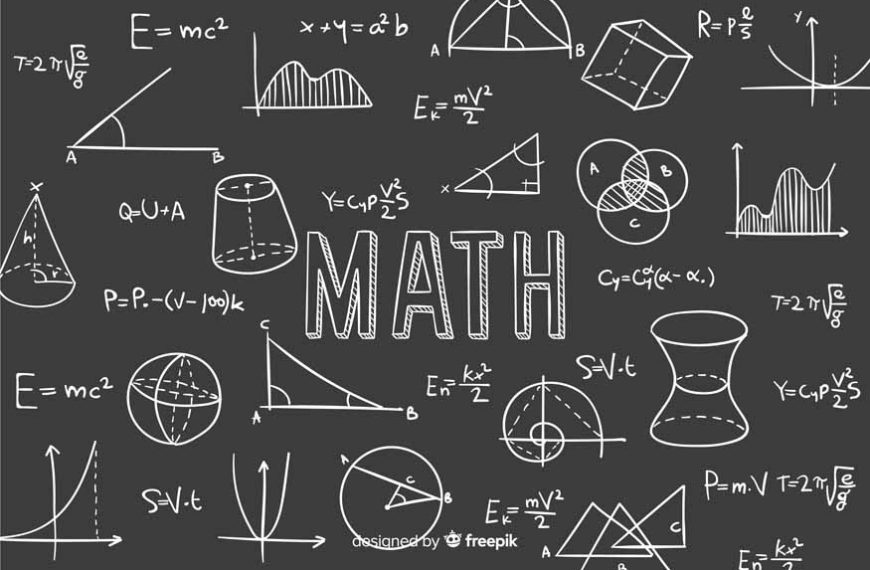In a world where complexity and interconnectivity define our daily experiences, the importance of mathematics emerges as a powerful and versatile tool, influencing and enriching various facets of our lives. This article delves deeper into the multifaceted reasons why mathematics is not only important but indispensable in real-life scenarios, examining its applications across diverse fields and shedding light on its transformative potential.
- Financial Literacy:
- Career Opportunities:
- Problem-Solving Skills:
- Critical Thinking and Analytical Skills:
- Technology Advancements:
- Scientific Discoveries and Innovations:
- Everyday Measurements and Conversions:
- Medical and Health Sciences:
- Environmental Studies and Conservation:
- Global Economy and Trade:
- Educational Empowerment:
- Innovation and Creativity:
- Inclusive Technological Access:
- Space Exploration and Navigation:
- Sports Analytics:
Financial literacy, deeply entwined with mathematics, goes beyond basic budgeting and understanding interest rates. Advanced mathematical concepts play a pivotal role in financial modelling, risk assessment, and investment portfolio optimization. For instance, the use of calculus in determining optimal investment strategies or probability theory in assessing market risks highlights how higher-level mathematical principles are integral to navigating the complexities of the financial landscape.
The influence of mathematics on career opportunities extends beyond traditional fields. In emerging sectors like data science and artificial intelligence, the demand for individuals with a profound mathematical understanding is on the rise. These fields rely on mathematical algorithms, statistical models, and computational methodologies to derive meaningful insights from vast datasets. Pursuing a career in these cutting-edge domains becomes more accessible with a strong mathematical foundation.
The problem-solving skills cultivated through mathematical exploration are not limited to specific situations. They become a lifelong companion, aiding individuals in navigating an array of challenges. Whether it’s a technical glitch in a computer system, a logistical issue in supply chain management, or a personal dilemma, the structured problem-solving approach ingrained through mathematics becomes a valuable asset.
Mathematics acts as a catalyst for nurturing critical thinking and analytical skills. It encourages individuals to question assumptions, evaluate evidence, and draw logical conclusions. These skills extend beyond mathematical problem-solving, becoming fundamental in fields such as law, journalism, and policy-making. Individuals adept at critical thinking contribute to a society that values evidence-based decision-making and thoughtful analysis.
The rapid advancement of technology in the digital age is intricately linked to mathematical principles. Cryptography, a field that secures our digital communication, relies on number theory; algorithms powering search engines are rooted in linear algebra and graph theory. Understanding these mathematical underpinnings not only demystifies technology but also empowers individuals to engage with and contribute to the ongoing digital revolution.
Mathematics serves as the backbone of scientific discoveries and innovations. Space exploration, for example, involves complex mathematical calculations for trajectory planning, orbital mechanics, and data analysis. Whether unravelling the mysteries of the cosmos or studying microscopic particles, scientists leverage mathematical tools to formulate hypotheses, design experiments, and interpret results.
In the minutiae of everyday life, mathematics orchestrates a symphony of precision. From the exact measurements required in cooking recipes to the accuracy demanded in construction projects, mathematics ensures that outcomes align with expectations. Understanding geometric principles aids in spatial arrangements, while proficiency in unit conversions facilitates seamless transitions between different systems of measurement.
The role of mathematics in medical and health sciences extends beyond traditional applications. Precision medicine, an evolving field that tailors medical treatment to individual characteristics, relies heavily on statistical models and computational algorithms. In epidemiology, mathematical modelling helps predict disease spread, plan vaccination strategies, and assess the impact of public health interventions.
The pressing challenges of environmental degradation and climate change find solutions in the language of mathematics. Complex mathematical models simulate ecological systems, predict climate patterns, and assess the long-term impact of human activities on the environment. Conservation efforts benefit from mathematical optimization techniques, ensuring resource allocation is efficient and sustainable.
In the grand theatre of the global economy, mathematics takes centre stage. Economic models, grounded in mathematical principles, guide policymakers in making informed decisions. From analyzing trade patterns to predicting market trends, mathematics provides a lens through which economists and policymakers interpret the intricacies of global commerce.
Beyond career trajectories, mathematics serves as a gateway to lifelong learning and intellectual empowerment. A robust mathematical foundation instils a love for learning, fostering adaptability in the face of evolving challenges. Mathematics becomes not just a subject in school but a companion throughout one’s educational journey, continually enriching the mind and enhancing cognitive abilities.
Despite the common misconception that mathematics is a strict and regimented field of study, it really fosters creativity and invention. The foundation of music, design, and even the arts is mathematics. Complex artworks are inspired by fractals, which are mathematical patterns that recur at various scales, and original musical compositions are influenced by algorithms.
Mathematics plays a pivotal role in ensuring inclusive access to technology. As societies strive to bridge the digital divide, mathematical algorithms are employed to design user-friendly interfaces, enhance digital literacy programs, and develop technologies that cater to diverse populations. From smartphone applications to online learning platforms, mathematical considerations facilitate technology’s reach to every corner of the globe.
The exploration of outer space relies heavily on mathematical calculations for spacecraft navigation, orbital mechanics, and celestial body positioning. Whether plotting a course to a distant planet or determining the trajectory of a satellite, mathematics provides the precision needed for successful space exploration. The synergy of mathematics and space science propels humanity into new frontiers of understanding.
In the realm of sports, mathematics has become a game-changer. Sports analytics, powered by statistical modelling and data analysis, revolutionizes how teams strategise and athletes train. From predicting player performance to optimizing game strategies, mathematics provides a competitive edge in the world of sports. The integration of mathematical insights has transformed sports management and enhanced the overall athletic experience.
In conclusion, the significance of mathematics patterns in real-life scenarios transcends the boundaries of specific applications. It evolves into a dynamic force that empowers individuals, fuels innovation, and shapes the trajectory of societies. From the intricacies of financial modelling to the grandeur of space exploration, mathematics is a universal language that unlocks doors to understanding, problem-solving, and creativity. Embracing mathematics is not merely a pragmatic choice; it is a journey towards intellectual enrichment, innovation, and a deeper appreciation of the interconnected world we inhabit. As we navigate an era defined by rapid technological advancement and global challenges, the role of mathematics becomes increasingly pronounced, urging us to recognize its transformative potential and embrace it as an essential companion on our journey through life.
For more such interesting blogs, Visit EuroKids















